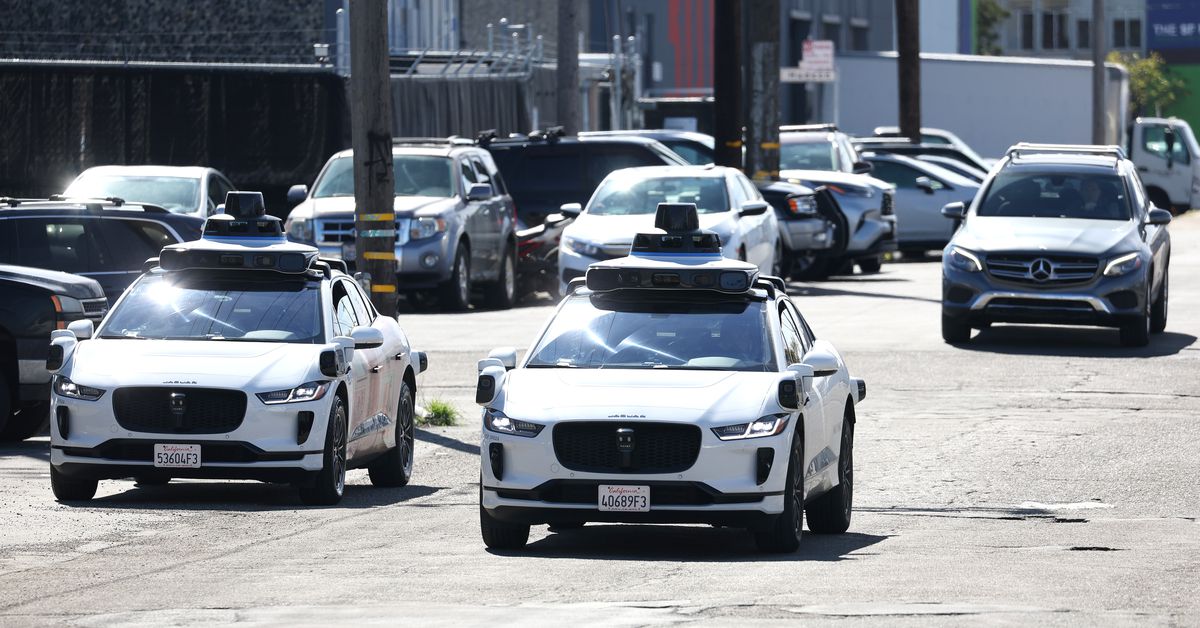
Waymo is dramatically expanding its robotaxi service areas in Phoenix and San Francisco as it seeks to gain new customers, generate more revenue, and make a convincing argument that self-driving cars are more than just an expensive fad.
In Phoenix, the company’s autonomous Jaguar I-PACE vehicles will now cover a total of 180 square miles, or roughly twice the size of its current map and four times the size of the area that the company served when it first launched its ride-hailing operation in 2020.
Waymo’s two distinct service areas, Downtown Phoenix and the East Valley communities of Tempe, Gilbert, Mesa, and Chandler, will be connected for the first time. And the company’s robotaxis will also now serve the town of Scottsdale, known for its spa resorts and golf courses.
Waymo is also adding a new pickup spot at Phoenix’s Sky Harbor Airport, which the company views as important for its money-making potential. (Airports are typically the most important destination for ridehail businesses.) And it is now allowing for up to four passengers in its driverless vehicles.
Waymo has been testing its cars in Phoenix since 2017, and now the city represents the “largest contiguous AV area in the world,” Waymo product chief Saswat Panigrahi said in a briefing with reporters.
Phoenix represents the “largest contiguous AV area in the world,” Waymo says
In San Francisco, the company is now covering the entire peninsula, operating a free, 24/7 robotaxi service. The northeast section of the city, including Fisherman’s Wharf and North Beach, are still only accessible to Waymo’s Trusted Testers, who are employees and guests who have signed up to beta test certain features.
But the business of operating a robotaxi service will remain difficult so long as there are restrictions to where the vehicles can travel. Human-driven services like Uber and Lyft have no such limitations. And customers can be fickle, quick to switch to another service that promises shorter wait times and fewer limits on where they can travel.
The company said it hopes to eventually begin charging for rides in San Francisco once it has secured a permit to do so from the California Public Utilities Commission. All in all, both cities represent the bulk of Waymo’s current operations.
“We’re already serving 10,000 fully autonomous trips with public riders every week,” Panigrahi said. “I want to clarify that that’s external riders; that does not include the rides we offer to our own employees.”
The news comes as city officials in San Francisco grapple with the rising number of driverless vehicles on their roads. In addition to Waymo, GM’s Cruise is also operating a small fleet of driverless vehicles as part of a ridehail service. And lately, there have been a number of incidents, including blocked roads and rear-ended buses, that have led some officials to request the companies slow down their expansion plans.
“We’re already serving 10,000 fully autonomous trips with public riders every week”
But Panigrahi said that Waymo’s vehicles are “continuously improving,” implying that past mistakes would not necessarily be repeated by the company’s fleet of AI-powered taxis. “Now, as part of deploying a fully autonomous vehicle, there’s clearly additional learnings that we’re responding to, and we will we will place safety at the forefront, first and foremost,” he said.
Most recently, the fog in San Francisco caused a pack of five Waymo autonomous vehicles to come to a halt, causing a minor traffic jam, according to The Washington Post. Officials from the county’s transit agency have written to regulators arguing that the expansion of Waymo’s service “is unreasonable,” citing recent incidents involving stopped driverless vehicles blocking traffic and obstructing emergency responders.
“We are discussing unique situations where, for example, the ideal behavior in potentially unsafe situations sometimes is to pull over to the right,” Panigrahi said. “That’s what you would like a competent driver to do.”
https://www.theverge.com/2023/5/4/23709962/waymo-phoenix-san-francisco-service-area-robotaxi

